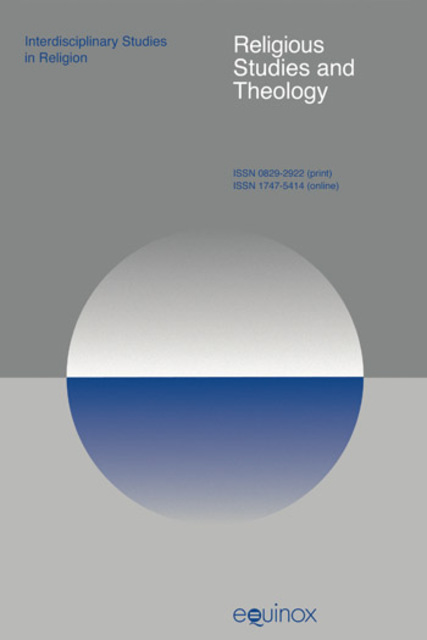Tolerating Babel: The Bible, Film, and the Family in U.S. Biopolitics

Runions, E. (2011). Tolerating Babel: The Bible, Film, and the Family in U.S. Biopolitics. Religious Studies and Theology, 29(2), 143–169. https://doi.org/10.1558/rsth.v29i2.143
Full description
D.W. Griffith’s 1916 film Intolerance: Love’s Struggle through the Ages, and Alejandro González Iñárritu’s 2006 film Babel both treat the biblical figure of Babylon/Babel positively and negatively. These films are analyzed for their ambivalence toward Babylon, as it dramatizes and facilitates the tensions between unity and diversity, control and mobility, rights and interest, individual discipline and regularization of the population at work in biopolitical U.S. empire. These films wish to rebuild Babel: they propose cinema as a universal language able to bridge communicative divides and remedy the violence and social control of intolerant empire. In imagining a more tolerant world, they ostensibly value diversity. Yet they want to return to the normative sexual relations of the white heteronormative family. Thus, both films mirror an ambivalence, also found in Genesis 11, toward social/political unity and diversity, producing a liberal tolerance discourse wherein the regulation and regularization of populations via biopolitics can be detested and yet pursued.
- typeImage
- created on
- file formatjpeg
- file size31 KB
- container titleReligious Studies & Theology
- creatorErin Runions
- issn1747-5414 (online)
- issue29.2
- publisherEquinox Publishing Ltd.
- publisher placeSheffield, United Kingdom
- rights holderEquinox Publishing Ltd.
- volume
- doi
We use cookies to analyze our traffic. Please decide if you are willing to accept cookies from our website. You can change this setting anytime in Privacy Settings.
